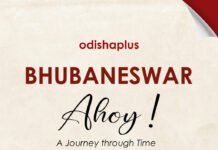Sailendra Pattanayak
(Professor Jeetendra Nath Mohanty passed away on 7th March 2023 at his home in Philadelphia, Pennsylvania, U.S.A.)
The ‘Great Calcutta Killings’ and the Quest for Meaning in Life in Philosophy:
Jeetendra Nath’s first-hand experience of the ‘Great Calcutta Killings’ in which the Hindus and Muslims killed each other in thousands and thousands created a dark scar on his soul : “…. what the value of religion was, in whose name, over the centuries …. could such acts of wanton cruelty be perpetrated?”

As he enrolls for post-graduation studies in philosophy in Calcutta University the recent memories of the carnage continued to hunt him; while to the quest of his life now added was the philosophical quest for meaning of the creation and human presence in it.
Completing the M.A. examinations, standing first in the First Class, Jeetendra Nath had found himself in a double mind – whether to join as a lecturer in the Bengal Education Service or return back to Odisha. But a chance meeting on the road with Professor Gopinath Bhattacharya, who has taught him at the University made him give up the job and study Sanskrit. About this he writes in his autobiography ‘Between Two Worlds- East and West’ (2002), “Thus began years of intense study, which ended only with the great years I studied in Gottingen.” Also because of the same, the rigorous study of Sanskrit texts, particularly Navya Nyaya, made him the most prominent of philosophers interpreting and propagating Indian Philosophy in twentieth century.

Doctorate, Germany and Nazism:
For his doctorate in philosophy Jeetendra Nath reached Gottingen in Germany. “In 1952 I came from Calcutta as a young graduate student, coming to the West for the first time, leaving old parents, a young wife and a one-year-old daughter.” In Gottingen University he studied besides philosophy and mathematics, also Sanskrit, especially Vedic Sanskrit.”
In Germany he came to know “the true face of Nazism as well as that of Fascism that was not clearly seen by most Indians, even by good politicians…. Even so astute a politician as Subash Chandra Bose had hoped that Nazi Germany would help him…. The poet Rabindranath Tagore had been duped by Mussolini… When I think of all this, of how German philosophers compromised with the Nazis, my faith in philosophy drops to a low point.“
Regarding the course of his philosophical journey Prof. Mohanty says- “I am not merely an Odia, I am also an Indian. I am also a human, with the entire history of human consciousness shaping me. In this way I realize I am the midpoint of a series of concentric circles. To actualize those circles within my consciousness is what it takes to be a world philosopher. Dialogue with other traditions is also a dialogue within oneself.”
Returning Home and Joining Vinoba’s Bhoodan Yagyan:
After receiving his doctorate in the winter of 1954 Dr. Mohanty returned home.” Disembarking at Cuttack railway station, I saw my mother dressed as a widow, and Bani with our two children. Delight and grief were mingled together, as they always are.”
“While at Gottingen I had heard of Vinoba Bhabe’s Bhoodan march, and was eager to get to know him. My uncle (Nabakrushna Choudhury) had written to me : ‘Vinoba has raised the public esteem of philosophy, for he is putting a philosophy into practice.” In the Bhoodan Padayatra of Vinoba, Jeetendra Nath accompanied him through the entire length covering Odisha.

While walking with Vinoba, Prof. Mohanty discovered, indeed, the philosopher Vinoba. “After a couple of days of walking, I asked Vinoba if he would teach me some of the Upanishads. He agreed, but the only time he could give me was en route. So after sun rise, along the way, he would stop, on a field or under a tree, he hold a class for the group and talk to us about Isa, Kenaand the Katha Upanshads.” Later came to realize many interpretations of the Upanshads by Vinoba were to be unique. “…that there is no reason why the possibility of a fresh understanding of a text should be subjected to a closer.” Later, after he started teaching in Calcutta, he translated some of Vinoba’s lectures and published as Science and Self-knowledge.
“A Tradition Nourishes Your Life…”:
Prof. Mohanty left India for USA in January 1970. During next two decades he was to be considered the most prominent of philosophers of Phenomenology. Nevertheless, he continued to come to India and to his village every year. And during the same period his works in Indian philosophy continuously opened up new vistas of creative thinking in Indian philosophy. It could be said that his close interaction with Vinoba was greatly helpful in this regard because he continued to remain sincere to the question – ‘To what extent can philosophy in India be relevant to the practical and political life in the country?’
That was how although from his post-graduation days he continuously delved deep in the Sanskrit texts of darsanas (Mimansa, Nyaya and Vedanta) he remained reverently open to the wisdom – tradition of India that produced such great lineage of ‘public-philosophers’ in the persons of Swami Vivekananda, Sri Aurobindo, Tagore, Gandhi and Vinoba Bhave. All along he kept himself engaged with their works and continued to interpret them afresh.

“It has been an exhilarating life…”:
“…about which I have no complaints.” Prof. Mohanty writes in the ‘Epilogue’ of his autobiography. But nevertheless, as a young man he had dreams which he could succeed in fulfilling. “Amongst those dreams are: doing Gandhian village level social work, political activism, practicing yoga.”
And, it seems, in deep sorrow and remorse he writes towards the end of his autobiography—“…the Orissa I knew, where I always returned was my village— not the new middle-class that has arisen since I left the state.
“In a way, the same is true of India as a whole, including Calcutta. Within the past three decades, India has changed. A highly sophisticated, westernized (rather, Americanized) middle-class has come into being… Young intellectuals practice (or rather talk about) deconstruction. Gandhi is regarded as having pushed the country back. Those who combine their westernization with Hindutva politics wish, and announce publicly, that it would have been better if Godse had eliminated Gandhi earlier… I heard young students tell me that BJP was showing the way: bring back the ideology of Hinduva. I shivered within myself, in disbelief and fear of the unknown. (The ideologists of Hindutva were not believers in Hinduism.)”
Life as an Aesthetic Project:
JN Mohanty completed his autobiography – ‘Between Two Worlds – East and West’ on 15 October 2000. Born in 1928 he was seventy two years old. But in the last chapter of the book- ‘Keeping a Promise’ he had informed the readers: “the story ends with the year 1998.” And the story has been the story of the journey of a great mind. In the book elsewhere he says- “Thinking is hard, to follow the path of thinking is harder still. To fall while moving along this path is the best good fortune that a thinker can hope for.” And, he ends the story with one or two simple but grand proclamations: “This life will be complete, in its incompleteness, with my death… For myself living this life has been, if successful, an aesthetic project.”
(The Author is a Poet, Spiritualist and Development Professional. Opinions are personal)



























